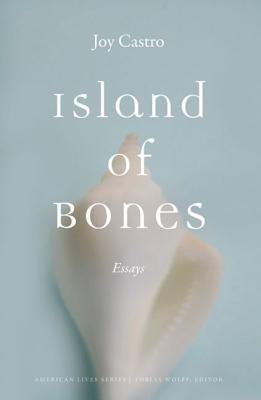What is "identity" when you're a girl adopted as an infant by a Cuban American family of Jehovah's Witnesses? The answer isn't easy. You won't find it in books. And you certainly won't find it in the neighborhood. This is just the beginning of Joy Castro's unmoored life of searching and striving that she's turned to account with literary alchemy in Island of Bones.
In personal essays that plumb the depths of not-belonging, Castro takes the all-too-raw materials of her adolescence and young adulthood and views them through the prism of time. The result is an exquisitely rendered, richly detailed perspective on a uniquely troubled young life that reflects on the larger questions each of us faces in a world where diversity and singularity are forever at odds. In the experiences of her past--hunger and abuse, flight as a fourteen-year-old runaway, single motherhood, the revelations of her "true" ethnic identity, the suicide of her father--Castro finds the "jagged, smashed place of edges and fragments" that she pieces together to create an island all her own. Hers is a complicated but very real depiction of what it is to "jump class," to not belong but to find one's voice in the interstices of identity.
